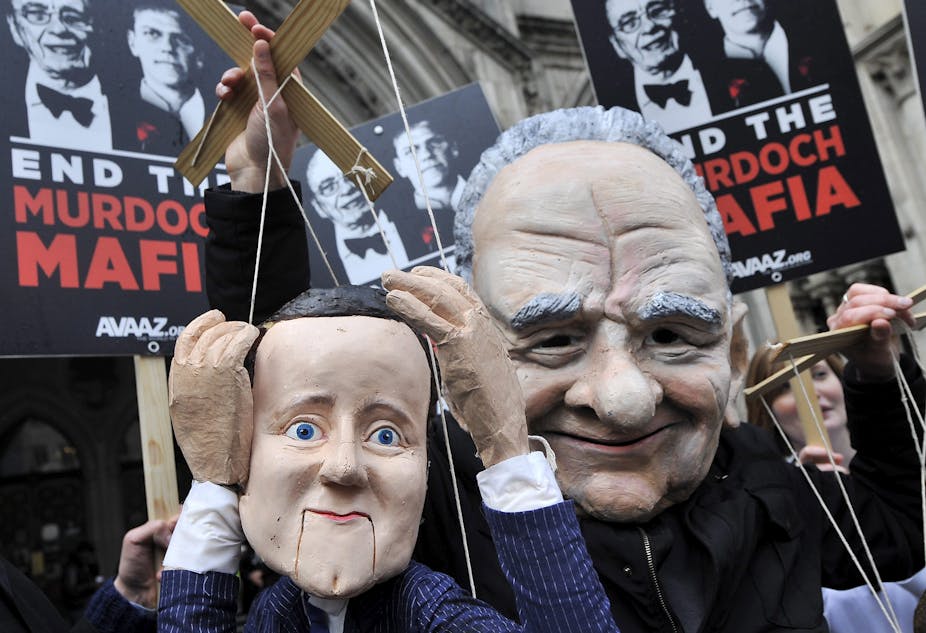The good Lord Leveson has certainly set the cat among both the press and political pigeons. His elegantly crafted proposal for establishing a self-regulatory regime for the press, backed by statutory under-pinning (which could have satisfied both sides of the statutory/self regulation divide) has come up against the harsh realities of Westminster’s realpolitik.
After eight months of hearings, Lord Leveson and his team have produced a 2,000-page report containing a wide range of recommendations; but the main issue is what form of regulation, if any, is appropriate for the British press for its “take no prisoners” approach to newsgathering.
All sides agree that the practices of some newspapers - phone hacking, harassment and intrusions of privacy - were totally unacceptable and need to be controlled. However, the newspapers, and their allies, claim that these offences are all unlawful and should be dealt with by the police and courts, without the need for any government-imposed regulator. “Leave us to regulate ourselves with the police as back-up” cry the press proprietors.
Those on the other side of the argument point to the fact that five times since World War II, government inquiries have looked at the behaviour of the British press and recommended regulation. Every time, governments of both parties, have shaken their fingers at the newspaper bosses and told them to go away and behave, or else. Famously a Tory minister told newspapers back in 1991, they were “drinking in the last chance saloon”. Still, the “or else” has yet to come, and the press have continued supping in the saloon, with their police and political friends standing the drinks.
Leveson has recommended two-stage regulatory machinery.
Day-to-day oversight will be undertaken by a non-statutory self-regulatory body, set up by the press, but without any serving editors involved. This body would have the power to fine newspapers up to one million pounds for breaches of their code of conduct.
Standing above this body would be a statutory one - Leveson suggests the broadcast regulator, Ofcom - which will have the power to intervene if it felt the lower body was not adequately fulfilling its role, and would also directly regulate any newspaper that refused to join the self-regulatory body.
But the debate is not just about the media, it’s also about politics, perhaps primarily about politics.
In welcoming the report in Parliament today, British prime minister David Cameron said he accepted the “Leveson principles” but he was opposed to enacting any legislation to make them a reality. However, not just Lord Leveson and the leader of the opposition, Ed Miliband, but also Cameron’s coalition partner, Nick Clegg believe that without statutory backing, the proposals are toothless and it will soon be business as usual for the press.
And there could be even more to this than simply a disagreement about press regulation. After 60 years out of power it was understandable that the Liberal Democrats jumped at the chance of becoming junior partners to the Conservatives in Britain’s first peacetime coalition government since the 1930s.
But their reward has been to find themselves with single-figure poll ratings putting them behind, not just Labour and the Conservatives, but also the right-wing UK Independence Party.
So if the Liberal Democrats are to have any chances of surviving the next election with more than a tiny rump of MPs, they will need to distance themselves from their Conservative partners, whose attempts to breathe life into the British economy have so far been a dismal failure.
And on what better issue to take a moral stand could there be than this? Statutory press regulation is popular with the public and a principled stance on the issue would give the Liberal Democrats not just distance from the Conservatives, but something that pulls them closer to the Labour Party, who now have a consistent poll lead over the Conservatives of 10% and more.
But maybe this is too Machiavellian. Maybe Nick Clegg really does believe in independent regulation of the press, irrespective of the political implications. If so, his aspirations might still be unfulfilled, for David Cameron, who cynics might suggest opposed statutory regulation because he did not wish to make enemies of either the press or his backbenchers, will find it easy to keep Leveson’s proposals far away from the statute book without ever having to face down his Liberal Democrat partners.
Given the importance of the issue he could, indeed has already, embark on cross-party talks to see if any sort of compromise solution can be achieved. If and when this fails he could then put in process some form of “public consultation”. This could be followed by a Green Paper, a White Paper, a draft bill and, hold on a moment, we are now well past May 2015, the date set for the next election, so the whole process goes on to the back-burner to be re-heated or discarded by the incoming government.
So forget the arguments about the finer points of media regulation. This is all about old-fashioned hard-ball politics, which means that predictions about the future are for the foolhardy only.
Watch this space.

